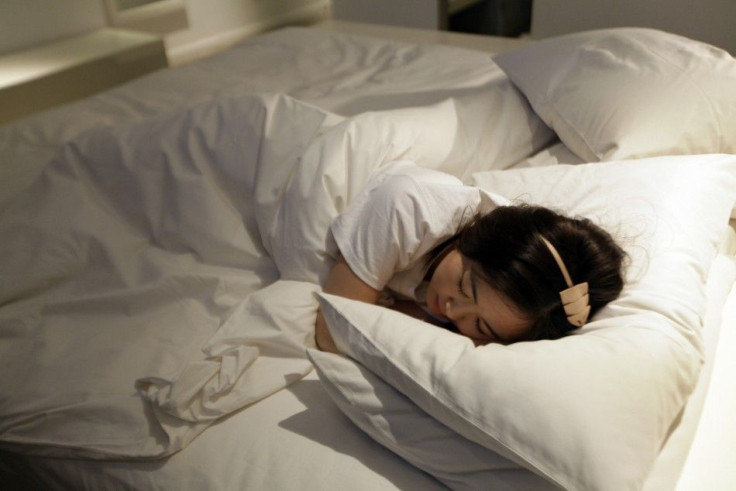U.S. Workers Sleep-Deprived, CDC: What Are The Dangers Of Too Little Sleep?

Sleep deprivation affects nearly a third of U.S. workers to the point of impacting their job performance and overall health, according to a new report released Thursday by the Centers for Disease Control and Prevention.
Nearly a third of U.S. workers (41 million) sleep fewer than six hours each night, according to the report, far less than the seven to nine hours recommended by the National Sleep Foundation.
Insufficient sleep can have serious and sometimes fatal consequences for fatigued workers and others around them, CDC investigators wrote in the report. An estimated 20 percent of vehicle crashes are linked to drowsy driving.
Sleep deprivation gives workers afternoon crashes of sleepiness, and also impacts their long-term health such as increased risk for diabetes and heart disease, experts said.
The modern condition of excess work, excess pressure, no sleep -- all this disruption -- we can't adapt well to it metabolically, Dr. Orfeu Buxton, study author and sleep researcher at Brigham and Women's Hospital, told WebMD. This is a maladaptive response to modern life.
Researchers found that disrupted sleep schedules of six-hour bouts decreased metabolism in volunteers, which could translate to annual weight gain of 10 pounds (4.5 kilograms). In addition, blood sugar levels rose, which increased the risk of diabetes.
People who sleep fewer than six hours or who sleep with disruptions stand a 48 percent greater chance of developing heart disease and a 15 percent greater chance of having a stroke, according to researchers.
The trend for late nights and early mornings is actually a ticking time bomb for our health. You need to act now to reduce your risk of developing these life-threatening conditions, Francesco Cappuccio, sleep researcher at Warwick Medical School, who conducted a study on sleep deprivation and heart disease, told the Guardian.
The trouble is that many workers do not make sleep a priority, Shelby Freedman Harris, director of the Behavioral Sleep Medicine Program at Montefiore Medical Center, told HealthDay.
Despite these consequences, many people still don't find the time for adequate sleep, with many having trouble with insomnia and not seeking proper help, she said. What is also important is making sure you have enough time between shifts to obtain a full night's sleep -- something many companies don't necessarily allow for.
Sleep deprivation affects night shift workers more. Over 40 percent of night-shift workers reported getting fewer than six hours of sleep, compared to 30 percent of day-shift workers.
Attempts to sleep during daylight hours, when melatonin levels decline and body temperature rises, usually result in shorter sleep episodes and more wakefulness, the report says.
Melatonin is a compound found in animals and plants that helps regulate the sleep cycle. During the day, melatonin levels decrease and makes it more difficult to fall asleep.
However, just because many workers do not meet the National Sleep Foundation's recommendations doesn't mean they are sleep deprived, Dr. Michael Breus, author of the book Beauty Sleep, told CNN. Sleep researchers put too much emphasis on the amount of sleep instead of focusing on what's really important.
Oftentimes, we only think of sleep in terms of minutes -- but that's really the quantity of sleep. In fact, there's a quality of sleep, he said. If you have sleep apnea and you stop breathing through the night, you might feel really tired in the morning even though you've gotten eight hours. Those eight hours were horrible, light, crappy sleep.
In order to ensure a better quality of sleep, people should try to go to bed at the same time every day, create a relaxing bedroom environment, avoid watching television or eating a large meal right before bed and turn off their cell phone, according to WebMD.
Any degree of sleep deprivation impairs performance or mood, Dr. Mark Mahowald, director of the Minnesota Regional Sleep Disorders Center, told WebMD. Our society has got to learn to respect sleep as biologically imperative. Getting a good night's sleep is as important as exercising regularly and eating a good diet.
The CDC published the report in its Morbidity and Mortality Weekly Report on Thursday.
© Copyright IBTimes 2025. All rights reserved.





















